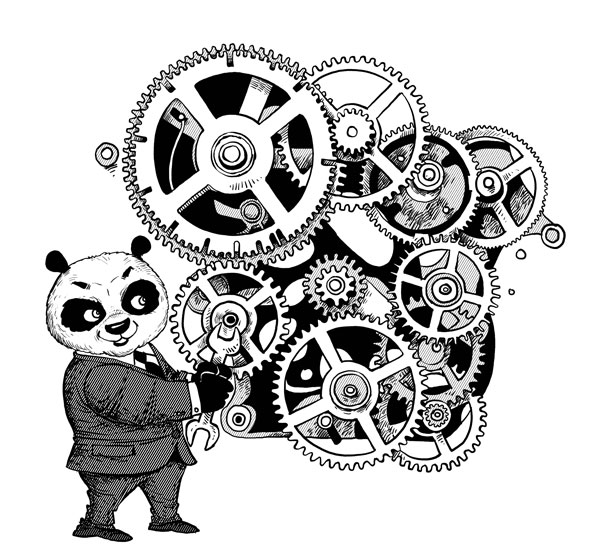

 |
|
Peng Li/China Daily |
China can look back on an unrivalled success story since the launch of reform and opening-up. By any standard, China's economic performance has been impressive. GDP growth averaged 10 percent a year in the past decade, and over 500 million people were lifted out of poverty.
But after more than three decades of rapid growth, China's development has reached another turning point. Because of demographic developments, surplus labor and low wages will soon be a thing of the past, and China is now closer to the technological frontier, so adopting technology from abroad will give less of a boost to growth in the future. China has also rapidly accumulated capital in recent years, and returns from additional capital will likely be lower. At the same time, China's share in foreign markets, notably advanced economies, is now large, and those markets are growing less in the aftermath of the global financial crisis. Environmental concerns, most visibly exemplified by the air pollution, also urgently demand a shift to a greener growth strategy. These are undoubtedly key factors behind China's leadership emphasizing the quality of growth as the central tenet of its strategy.
However, the central policy challenge facing the government is the country's relentless and rapid urbanization. China's urbanization rate will increase from about 50 percent today to more than 70 percent within the next 20 years. By 2030, a billion people will be living in China's cities. This process is in line with the country's economic development and the past experiences of rapidly growing economies elsewhere. But it needs to be guided by policies that are geared towards efficiency, social inclusion and sustainability.
To get there, reforms are needed to strengthen the foundations for a market-based economy by redefining the role of government, reforming and restructuring State-owned enterprises and banks, promoting competition, and deepening reforms in the land, labor, and financial markets.
The role of the government will need to shift to enhance the allocation of resources, protect the environment, and reduce risks and uncertainties. A focus on further reforms of State-owned enterprises, by introducing modern corporate governance practices, and on private sector development and fewer barriers to entry and exit will be crucial parts of this shift.
Commercializing the banking system, gradually allowing market-determined interest rates, deepening the capital market, and developing the legal and supervisory infrastructure, would ensure financial stability and efficiency. While encouraging green development and increased efficiency of resource use would not only improve the level of people's well-being and sustain rapid growth, it would also address China's manifold environmental challenges. Policies to reduce urban sprawl and encourage better spatial design, to improve connectivity within and between cities, would reduce energy use and congestion in cities. Managing the existing urban land better should also take precedence over acquiring new urban land.
Urbanization should be people centered and so provide equal access for all residents to similar levels of public services. The reform of the household registration system is central to overcoming the large rural-urban difference in access to jobs, key public services, and social protection. To make it truly inclusive, there needs to be more and better quality public services to underserved rural areas and to migrants to provide access from early childhood to tertiary education institutions, and from primary healthcare to care for the elderly.
Rural land institutions need to be reformed to protect farmers' rights and increase the efficiency of land use, and the policies for the acquisition of rural land for urban use must be thoroughly overhauled to prevent urban sprawl, reduce local government dependency on land-related revenues, and address a frequent cause of complaint. And along the way, a rural development strategy is needed to make sure that no one is left behind and that agriculture production in line with the needs of China's people.
Of course, reforms require financial resources. China can finance the proposed changes through strengthening of its fiscal system. Measures to this effect should include mobilizing additional fiscal resources to meet rising budgetary demands and compensation for lower revenues from undesirable land conversion; reallocation of spending toward social and environmental objectives; and ensuring that budgetary resources available at different levels of government are aligned with expenditure responsibilities, and distributed in an equitable way to provide the standards for public services China sees fit for all its citizens.
The envisaged policy changes are all interrelated and require an approach whereby the numerous actions and policy changes are coordinated and monitored to maximize consistency and outcomes, and to manage sequencing over time.
The author is World Bank country director for China.